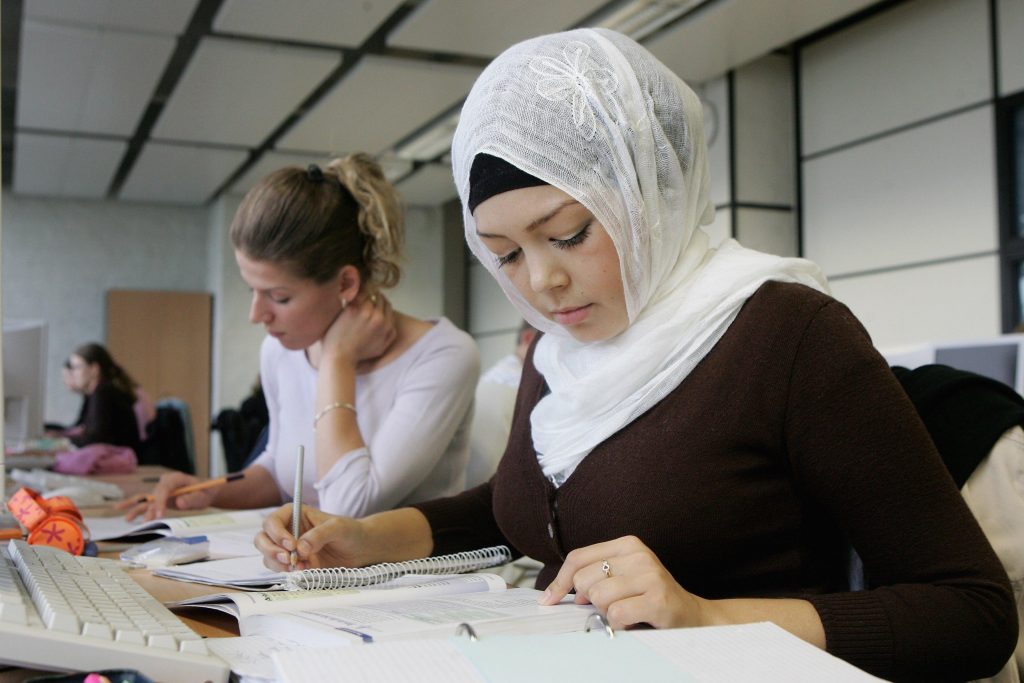The European Council for Fatwa and Research has denounced the European Union’s top court’s decision allowing companies to ban hijab for Muslim women at work, saying it favors employers’ discriminating against working women.
“The ECFR stresses that such a ruling and its likes diminish opportunities of positive integration and impact negatively on the rights of citizenship and deprives societies from Muslim women’s contributions to building societies and civilizations,” the Dublin-based council wrote in a statement issued Wednesday.
The Court of Justice of the European Union (CJEU) ruling issued in Luxembourg on October the 13th 2022 centered on a case concerning a Muslim woman who was told when she applied to do a six-week work traineeship at a Belgian company that she would not be allowed to wear a headscarf.
The woman took her grievance to a Belgian court, which subsequently sought advice from the Court of Justice of the European Union (CJEU) in Luxembourg.
“The internal rule of an undertaking prohibiting the visible wearing of religious, philosophical or spiritual signs does not constitute direct discrimination if applied to all workers in a general and undifferentiated way,” the CJEU judgment said.

Violating Human Rights
ECFR said that such ruling violates European conventions on human rights Article (9/10) which states: “Everyone has the right to freedom of thought, conscience and religion.”
It also violates the universal declaration of human rights issued by the United Nations saying, “Everyone has the right to freedom of thought, conscience and religion.”
“The ECFR urges the European Court to reconsider this ruling, since, if applied, it will restrict many Muslim European women, and isolate them,” the council added.
“Moreover, it will prevent them from assuming sincerely an active role in scientific, health, academic, and economic fields in their societies, since they perceive such a ruling violating their religious and human rights secured by all international as well as European conventions.”
Islam sees hijab as an obligatory code of dress, not a religious symbol displaying one’s affiliations.
The Islamic attire has been facing growing restrictions in European countries recently.
Such legal decisions have already impacted thousands of Muslim women across Europe.
Earlier this year, French highest court decided to uphold a ban on barristers wearing hijab in courtrooms in Lille.
Also in France, women wearing a niqab or burqa, which fully cover the face and body, in public space face a 150 euro fine.
In Germany, bans on religious clothing and symbols for teachers and other civil servants in Germany led some Muslim women to give up teaching careers.


